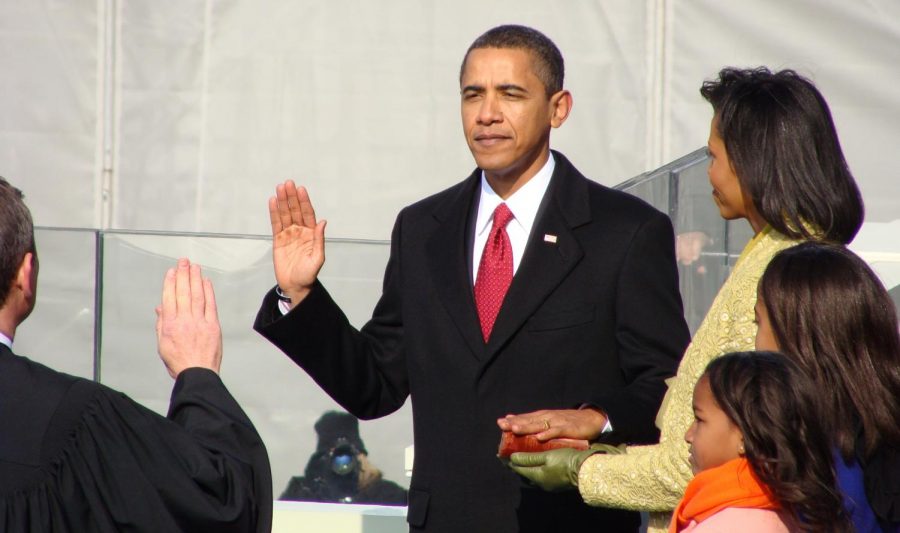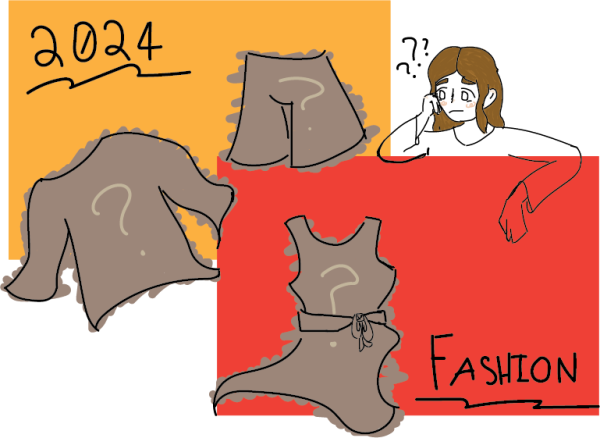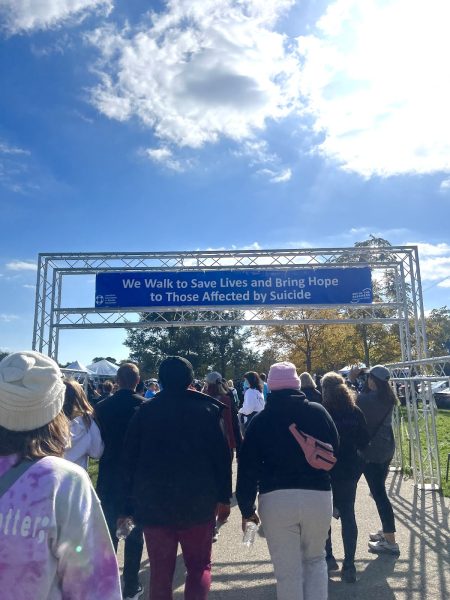Religion’s effect on daily life
Image courtesy of Wikimedia Commons
President Barack Obama is sworn in over a century-old Bible
“Congress shall make no law respecting an establishment of religion, or prohibiting the free exercise.” According to the first amendment, everyone is entitled to the freedom of religion. US citizens have the right to practice the religion of their choice, or they can decide not to follow any religion at all. No matter what you believe in, religion affects everyone to a certain degree.
Even though reciting the Pledge of Allegiance is voluntary, it does exclude a portion of the population. It states, “One nation under God,” however, religions have different gods and different people whom they follow. Since everyone has the right to believe in their own religion, why is it that the pledge to our country only includes people who believe in God? We are one nation that believes in many different things, not one nation who only believes in God.
When deciding where you stand morally, religion can affect how you make your decisions. Most presidents during the presidential inauguration make an oath while holding a bible. They have the ability to swear an oath using whatever book of faith they choose, or no sacred scripture at all. According to Article V1 Clause 3 of the U.S. Constitution, “No religious Test shall ever be required as a Qualification to any Office or public Trust under the United States.” Therefore, presidents are not required to promise their loyalty while placing their hand on a Bible, yet almost all do.
The significance of a President’s oath with a Bible does not make much sense to me. Yes, I understand the importance of religion to many people, yet I am confused on why it has anything to do with a president promising their loyalty to the country. Since the sacred scripture the president chooses may not have any significance to some people, how is it supposed to justify their loyalty to the U.S? To me, it would make more sense for presidents to swear under a document that applies to the population as a whole, not a specific community of people.
Primarily in grade school, teachers host parties in class celebrating the season, or should I say the holiday. According to World Atlas, 70.6% of Americans are affiliated with Christianity, which leaves almost 30% of the population affiliated with other religions or are non-religious. However, since Christianity overpowers the 30% it is more commonly celebrated across the country.
Since Christianity overpowers other religions in population, students who do not practice Christianity may be exposed to more Christian traditions since it is such a commonly practiced religion in the U.S. For instance, when we were younger, teachers would print us coloring sheets during the holiday seasons, of Jack O’Lanterns, Christmas trees, and Santa Clauses, which are all symbols of Christan Holidays. However, I cannot recall a teacher printing out crescent moons or Kinaras for students to color. In grade school, we would decorate ornaments for Christmas trees and sing Christmas Carols; however, I can only think of a few instances where we acknowledged the many other religions.
Stores like Target and Walmart also have seasonal displays where customers can purchase goods based on the Holiday. However, nearly all of the festive goods are Christian-based. During the winter, which is personally my favorite holiday season, you can find flashing lights and towering plastic trees covering an entire surface of Target’s store. There are isles filled with peppermint candies, sparkly ornaments, and red and green patterned decorations, all of which are associated with Christmas. Even though I celebrate Christmas and love all of the flashy lights and glitter, I have realized the lack of diversity at these stores. Within the many isles dedicated towards Christmas, there is maybe a shelf or two possessing holiday goods to the other common religions. Even though there are more people who celebrate Christianity in the U.S, there is a lack of seasonal goods dedicated to people other than Christians. This is unfortunate because purchasing holiday decor should be easily accessible no matter what religion you practice.
From the eyes of a näive teenager, it is easy to overlook the lack of knowledge people have of the many religions. There are many connections between law and God that are not necessary at this point in time. As a whole, people have become more accepting of others and their beliefs, yet there are still many flaws that prove there are barriers that separate us based on what we feel in our hearts. The U.S has a population of 372.2 million people, all possessing different backgrounds and stories. No matter what your beliefs are, we are one nation, and it is time to make the changes to respect our neighbors and the first amendment.












